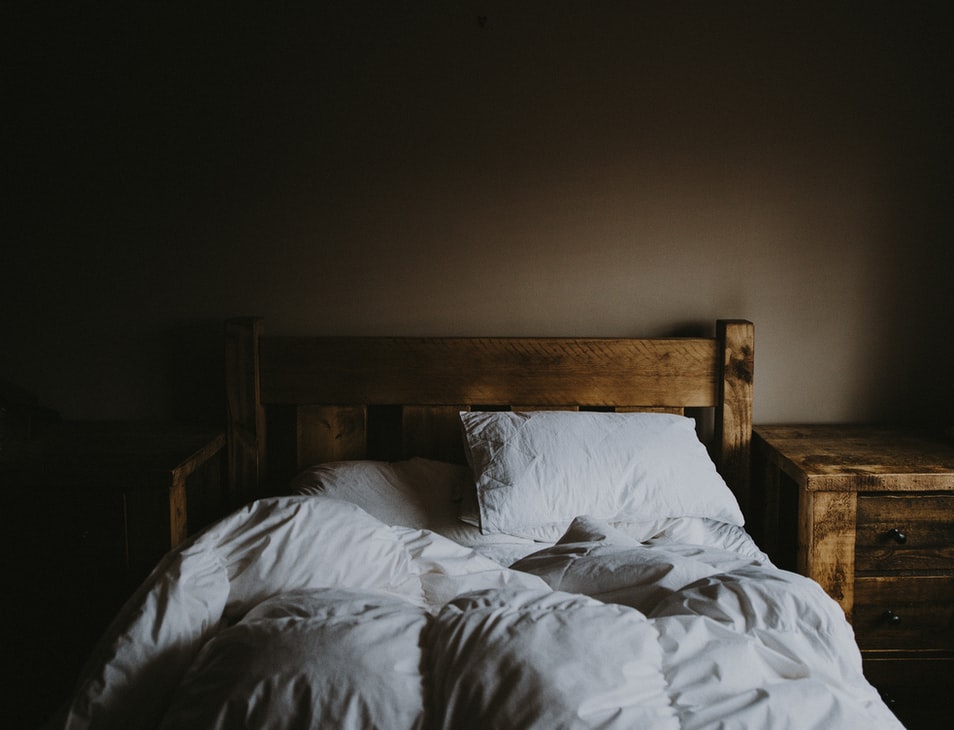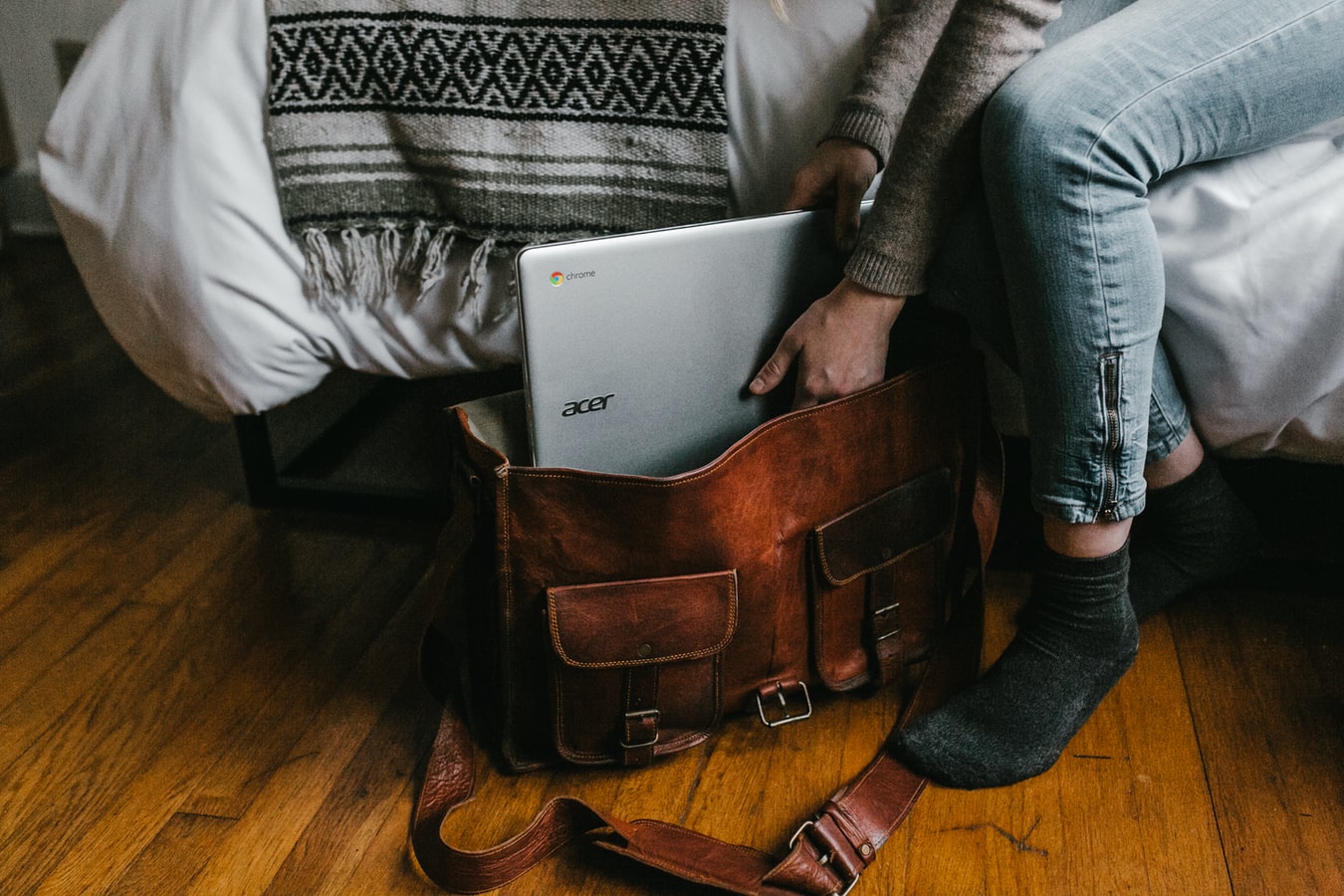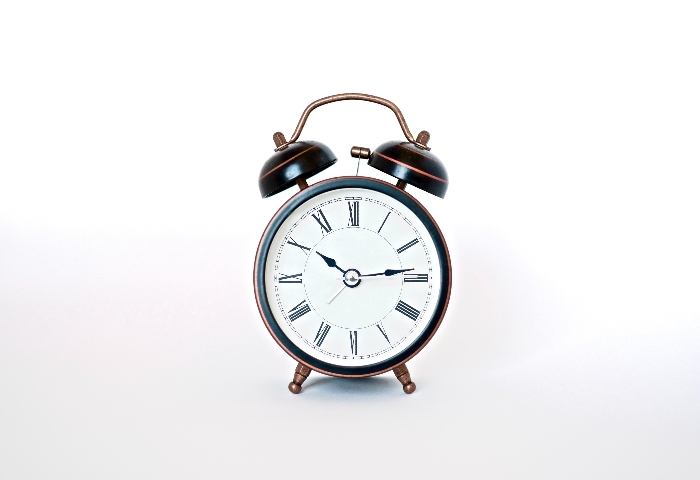Sleep Training: How Sleep Affects Athletic Performance
Envision yourself training for a big athletic event—what do you see? Are you thinking Rocky-style scenes, or did quality sleep happen to make an appearance in this imaginary routine? Both, we would argue, are equally important components of acing athletic endeavors.
But what better way to define how sleep impacts athletic performance than talking to more than 1,000 athletes? Golfers, basketball players, marathon runners, swimmers, and other competitive types talked to us about their preparation methods for successful performance events and training. They even shared some of their regrets when it came to some less-than-solid showings at a competition. Scroll further to see what these people had to share. They might have you rethinking what it really means to train.
Prepping With Sleep
Golfers slept the best of any athletic type we spoke to: 78.3 percent of this group described themselves as “well-rested” before they hit the fairway. This was in stark contrast to the 39.3 percent of marathon runners who said they were exhausted the morning of the run (or at least were not well-rested). It can take an average of 12 to 20 weeks to train for something as intense as a marathon, and this lengthy buildup of anticipation may make it difficult to fall asleep for many runners. Unfortunately, nearly a quarter of marathon runners were completely exhausted on the day when they needed their energy the most. And people who were exhausted in any sport were actually three times as likely to injure themselves that day.
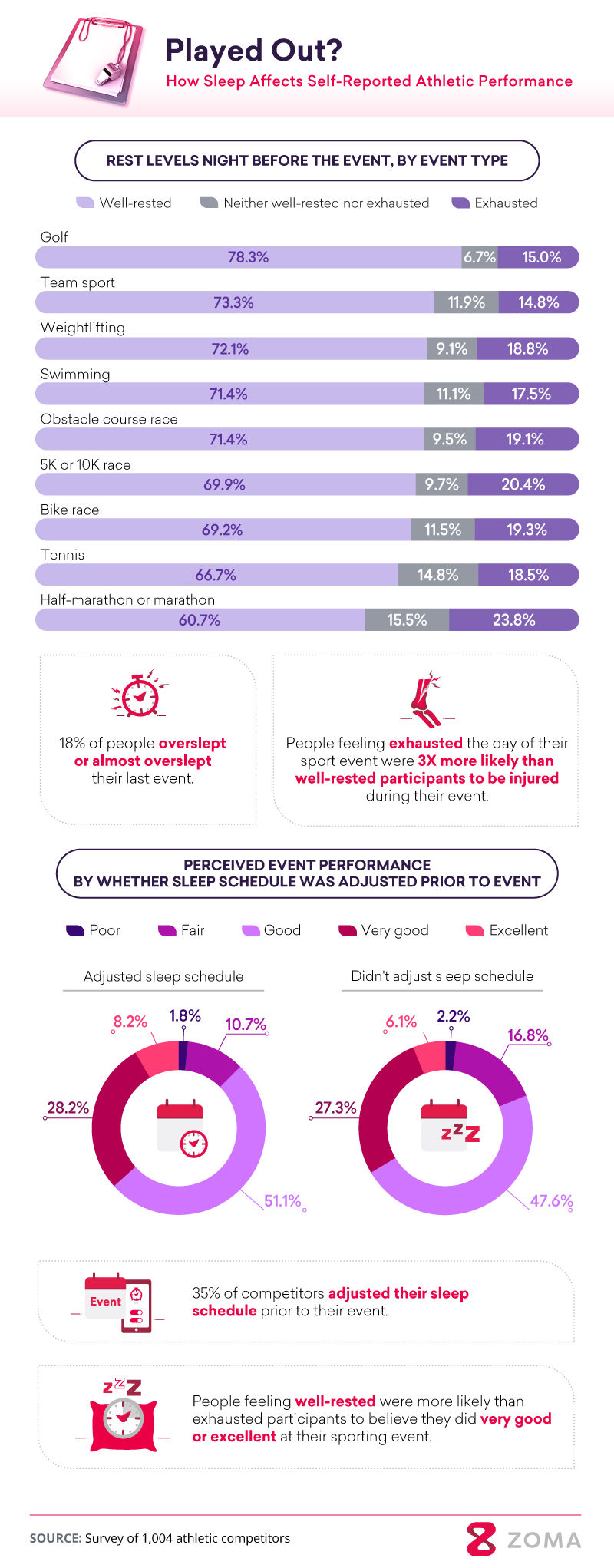
To protect your safety and give you the best chance of performing well, take the advice of the athletes who chose to try an adjusted sleep schedule as part of their training. This group was more likely to have good, very good, and even excellent performances in their athletic competitions.
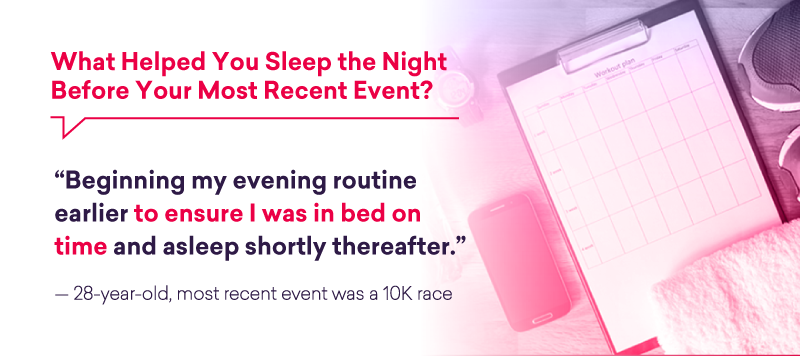
To fall asleep the night before his 10K race, one 28-year-old man told us that he started his “evening routine earlier to ensure [he] was in bed on time and asleep shortly thereafter.” It sounds like it’s worth a shot, particularly in light of some of the findings that follow.
Training Schedule Adjustments
The time of day for sleeping wasn’t the only thing athletes had to consider. Their training was often adjusted to coordinate with the time of their upcoming event. This tactic worked. Sixty percent adjusted their training schedule, and those who did so months ahead of time were the most likely to feel they performed well during their event.
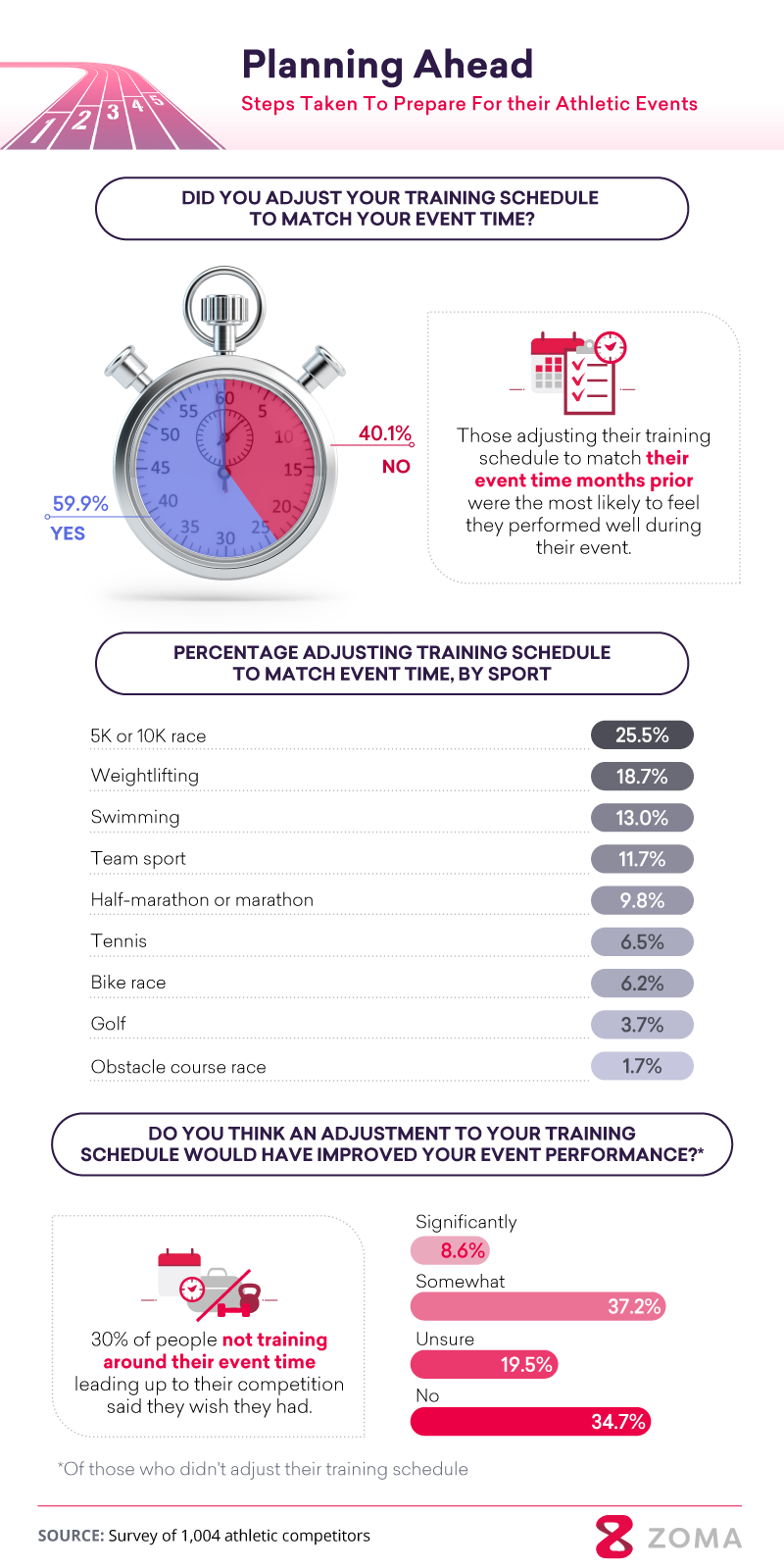
5K or 10K runners were the only ones who made training adjustments more than a fourth of the time. Other athletes were less likely to do so. Golfers and people involved in some type of obstacle course event often kept their training schedule the same, regardless of when a big event came up, and they paid the price: 30 percent of people who didn’t train near their event time wished they had. And when we asked those who didn’t adjust their training to their future event time if they thought doing so could have improved their performance, only 34.7 percent answered “no.”
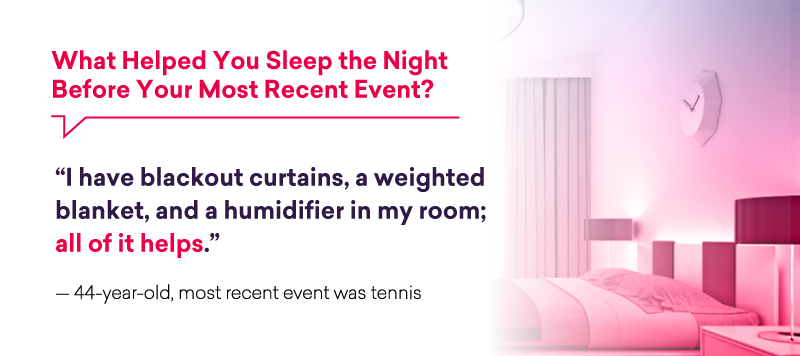
A 44-year-old tennis player suggested that a few sleep accessories, like “a weighted blanket and a humidifier,” helped her fall asleep before her most recent match.
Event Eve
Athletes tried a few other things to get ready for the big day. Eating a bigger breakfast, however, was one of the most beneficial things they could do. Big breakfast eaters were the most likely to self-evaluate their performance as good, very good, or excellent.
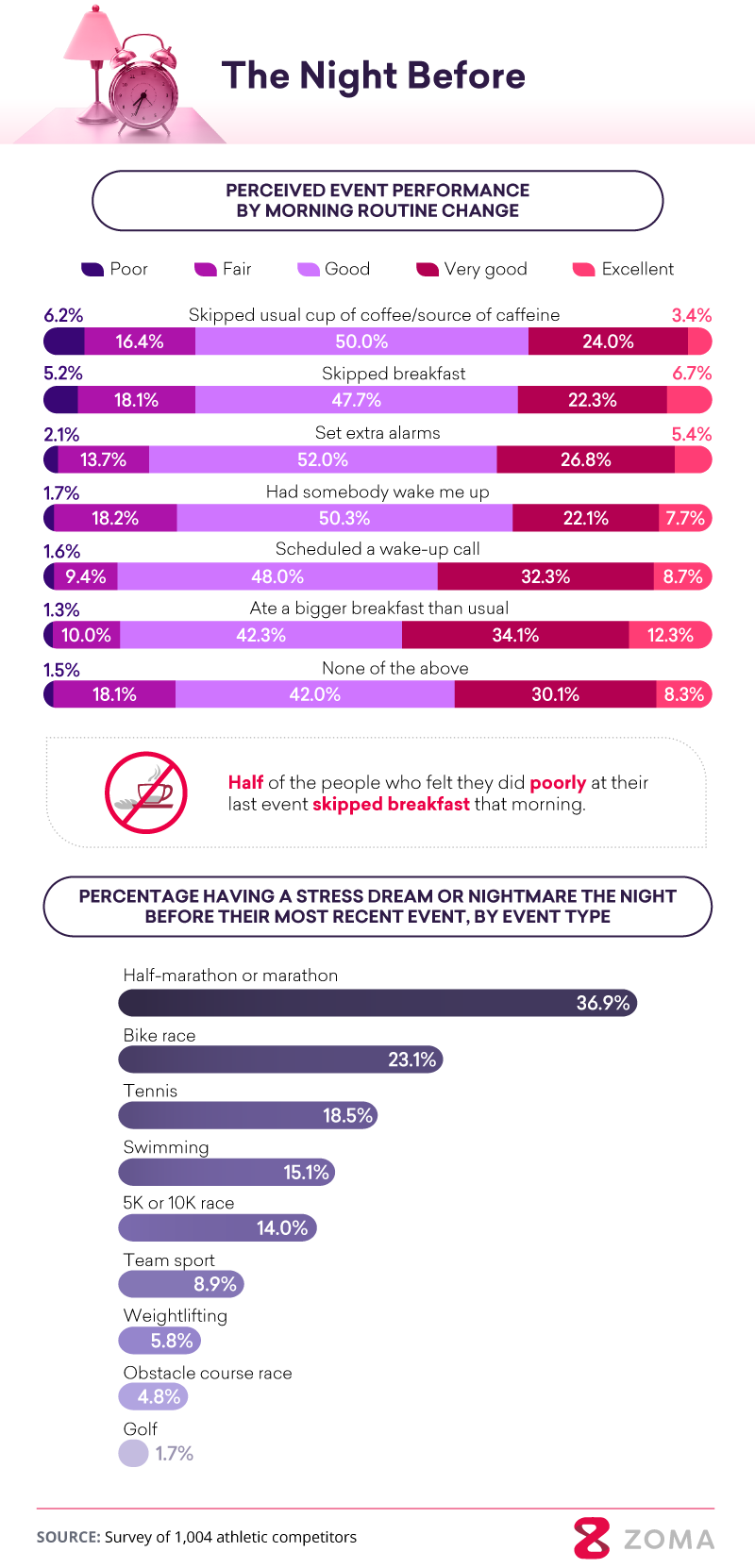
On the flip side, those who skipped breakfast were the most likely to rate their performance more harshly, often rating it as fair or poor. Even those who skipped their usual cup of coffee paid the price and joined this group in their likelihood of fair and poor performance. Whether there is an athletic event that day, some doctors would agree that breakfast is the most important meal, both for physical and mental health reasons.
We saw the same pre-event anxiety in marathon runners occurring in the form of nightmares, with these athletes being more likely than any other group to have a stress dream or nightmare the evening before their event. Golfers were once again the calmest, with only 1.7 percent experiencing night terrors before a game.
Marathon runners may want to take a tip from one 36-year-old athlete who told us that before his 5K runs, he helps himself fall asleep by remaining calm about the event and remembering that “… it doesn’t matter how I did. I just wanted to participate.”
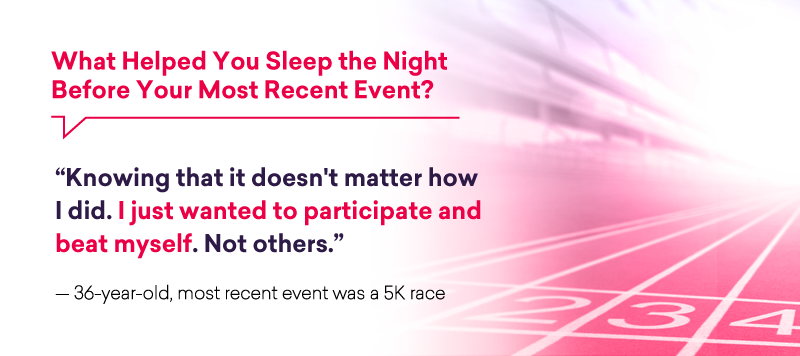
Pro Tips
Half-marathon and marathon runners were the most likely to struggle with oversleeping. The lack of sleep they might have gotten in anticipation of such a big event might have made it difficult to fall asleep and wake up on time the next day. Forty-two percent of this group slept through or almost overslept the morning of their big event.
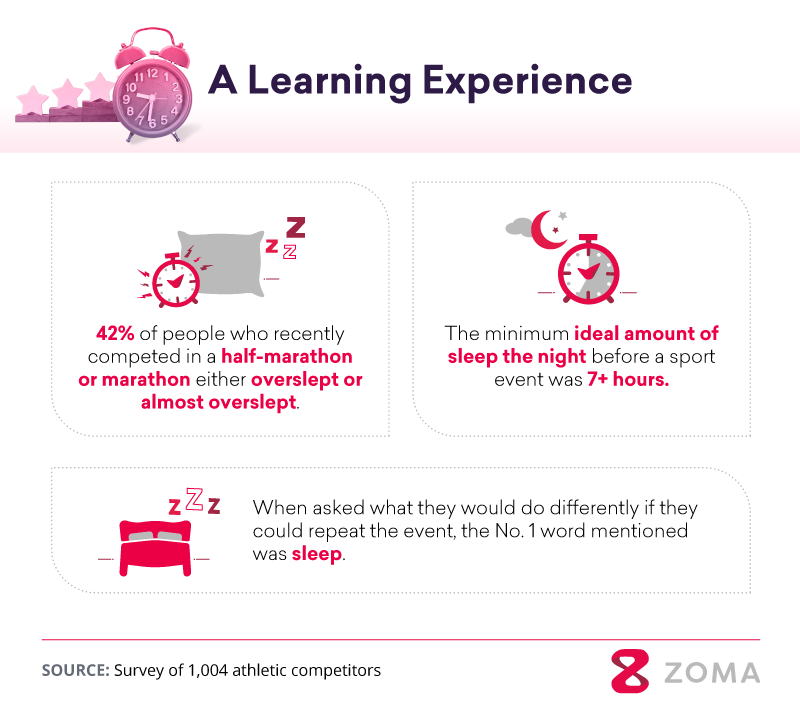
Across all athletic competition types, the minimum ideal amount of sleep the night before an event was seven hours or more. The Centers for Disease Control and Prevention also recommends that adults (athletic or not) get at least seven hours of sleep each night—no need for a big event the next day to prioritize sleep.
Powerful Sleep Performances
Sleep was the No. 1 thing athletes wished they would have approached differently in hindsight of their performances. They were mostly in agreement that if they were to do this event again, they would have rested more. This experienced group of participants (and not to mention most doctors) also agreed that at least seven hours of sleep was needed the night before to achieve some level of success the following day.
James Nguyen, sleep expert at Zoma, explains, “Athletes are showing us a glimpse into their hindsight. Their biggest training regret wasn’t the hours they clocked lifting weights or the numbers on a scale—it was sleep and how little of it they got. Runners, in particular, often poorly slept on the mornings of some of their biggest events. Even our most experienced athletes didn’t always get the rest they needed to achieve peak performance.”
We’d like to facilitate that process by steering you toward a great night’s sleep with our expert advice. Zoma can also help you find the perfect mattress for your body, a foundation in your price range, or your new favorite pillow. We’ve designed the best performance-enhancing sleep products, so head to Zoma today.
Methodology and Limitations
To gather the data presented in the above study, a survey was run using the Amazon Mechanical Turk service, which asked 1,004 people about their most recent athletic competition and their habits leading up to it. Of these respondents, 279 participated in a 5K or 10K race; 135 played basketball or soccer competitively; 52 were involved in a bike race; 84 competed in a half-marathon or marathon; 60 were part of a golf competition; 21 were part of an obstacle course race; 126 were involved in competitive swimming; 54 were involved in competitive tennis; 154 were involved in competitive weightlifting; and 39 were involved in another competitive sport/athletic activity. “Other” competitive activities were not shown in the results due to their low sample size.
To qualify for this survey, respondents had to actively participate in one of the activities listed above and then have competed in one of those sports/activities at least once in the past year. All data shown above rely on self-reporting, which can come with issues such as telescoping and exaggeration. To exclude respondents who answered randomly, an attention check was used.
Fair Use Statement
Hindsight is always 20-20 and leaves even experienced athletes wishing they had gotten more rest. So, help othersbetter prepare next time and feel free to share this data. Just be sure your purposes are noncommercial and you link back to this page.
This article is for informational purposes and should not replace advice from your doctor or other medical professional.
Michelle Zhang, Wellness Writer 
Michelle Zhang is a regular contributor to our Zoma blog and is our go-to sleep researcher. In her time with Zoma, Michelle has researched and published many articles on widespread sleeping habits and troubles. In her time outside of Zoma, Michelle is an occupational therapist and long-distance runner. She believes leading a healthy lifestyle is the key to getting better sleep at night. Michelle's work has been featured on Men's Journal, The Frisky, and The Mighty.
View all posts

